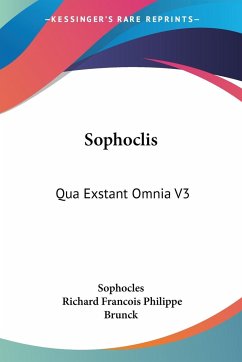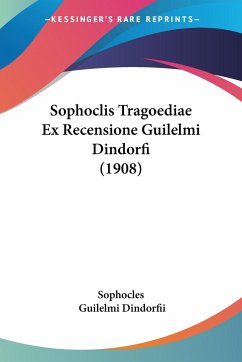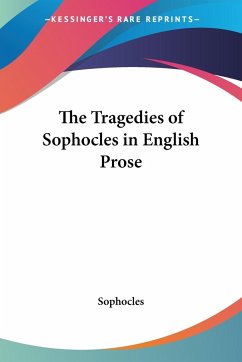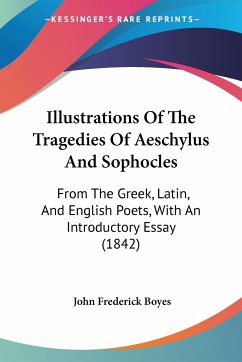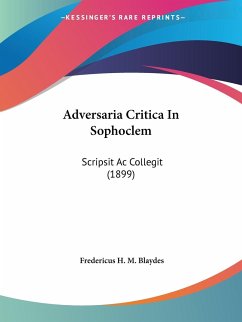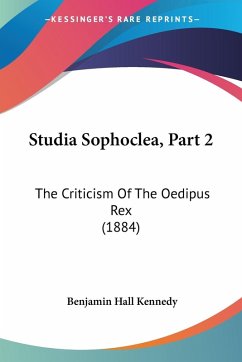Sophoclis: Qua Exstant Omnia V3: Cum Veterum Grammaticorum Scholiis (1824) is a book that contains all the surviving works of the ancient Greek playwright Sophocles. This edition is the third volume of the complete works and includes the texts of his plays, as well as commentary from ancient Greek grammarians. The book is written in Latin and was published in 1824. Sophocles is known for his contributions to Greek tragedy, with works such as Oedipus Rex and Antigone. This book provides a comprehensive look at his writing and the historical context in which it was created.This scarce antiquarian book is a facsimile reprint of the old original and may contain some imperfections such as library marks and notations. Because we believe this work is culturally important, we have made it available as part of our commitment for protecting, preserving, and promoting the world's literature in affordable, high quality, modern editions, that are true to their original work.
Hinweis: Dieser Artikel kann nur an eine deutsche Lieferadresse ausgeliefert werden.
Hinweis: Dieser Artikel kann nur an eine deutsche Lieferadresse ausgeliefert werden.

